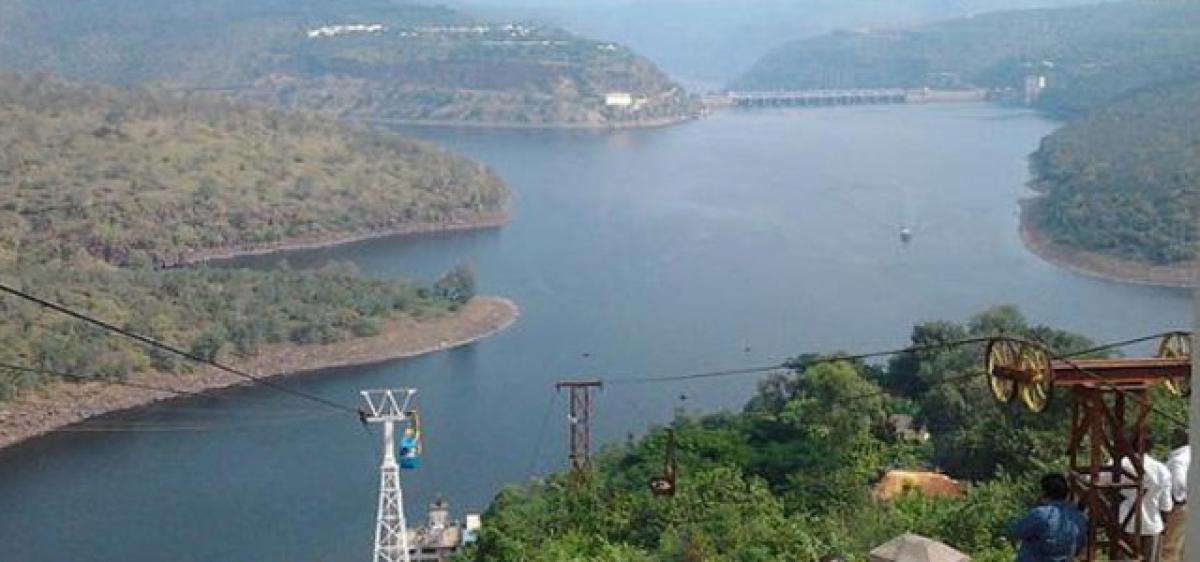Live
- Sudanese army recaptures capital of Sinnar State in central Sudan
- Kishkindha Kaandam Review: Some movies prove not to compromise in having a good cinematic experience and this is one of them
- Son-rise: Hemant Soren grows taller as tribal leader, makes father proud
- ISL 2024-25: 10-man NorthEast United FC hold on to take three points vs Punjab FC
- BGT 2024-25: Jaiswal’s application, commitment to form a partnership was so impressive, says Gilchrist
- BGT 2024-25: Personally, I am very happy with my performance, says Harshit Rana
- Pakistan's Lahore remains world's most polluted city despite light drizzle
- Asha Nautiyal retains Kedarnath for BJP, to be back as MLA after 12 years
- India leads world in science, innovation research: Minister
- Flash flood in Indonesia's South Tapanuli claims two lives
Just In

The Andhra Pradesh government is embarking upon promoting tourism as a growth engine. The Governor’s address to the joint session of State legislature on the eve of the budget which is considered to be the official policy pronouncement of the government clearly stated the road map to sell the State as a major tourist destination centre.
The Andhra Pradesh government is embarking upon promoting tourism as a growth engine. The Governor’s address to the joint session of State legislature on the eve of the budget which is considered to be the official policy pronouncement of the government clearly stated the road map to sell the State as a major tourist destination centre.
Tourism can be of different kinds- heritage, religious, adventure, eco, infrastructural, coastal, medical, recreational and cultural. The State still has a huge untapped potential in this sector. Tourism can be an effective instrument in terms of generating employment, earning revenue and foreign exchange, enhance environment, preserving culture and tradition thereby resulting in overall development.
Thus rightly so, the State government plans to develop heritage spots in Kurnool, Prakasam, Rajamahendravaram, Tirupati, Vijayawada, Visakhapatnam and other important places. Divine destinations like Tirupati, Srisailam, Srikalahasthi, Kadapa Dargah, Mahanandi, Simhachalam, Annavaram, Vijayawada and other places are being integrated into religious tourism circuits.
However, ensuring biodiversity, preserving fragile eco systems, rejuvenation of local economy are vital while promoting tourism. Therefore, promoting sustainable tourism is an imperative. Sustainable is not synonymous with ‘eco friendly’, though, environmental consciousness is the most important aspect of sustainability.
The sustainable path to tourism should be eco friendly and promote economic growth and incomes for the local region and people while preserving and promoting socio cultural development. Assess the physical impact of tourism. While we embark upon adventurous journey onto the snowy mountains which would certainly be ecstatic, we cannot ignore the fact that too much human intervention is resulting in melting of snow thereby causing climate change.
As we enjoy the beach tourism, we cannot forget the irreparable loss inflicted on the fragile coastal eco system. The Brundtland Commission of United Nations on Environment and Development in its report, ‘Our Common Future’ defined sustainable development as pursuing a development path without compromising the rights of the future generation to development.
If tourism destroys nature, it may still generate prosperity for this generation but, it would destroy the lives and livelihoods of the future generations and even the margianlised and the vulnerable in this generation too. The flash floods of Uttarakhand that devastated the majestic mountain region are attributed to the indiscriminate development promoted in the name of religious tourism.
The local people in tourist towns and cities experience congestion making their lives miserable. Development of infrastructure like accommodation, restaurants, water supply, recreational and other facilities for tourists can result in sand mining, erosion of beach and sand dune and extensive paving of hilly or forest terrain.
This is not to undermine the value of tourism for the local people. But, arrival of tourists should ensure greater employment and livelihood opportunities, improved civic facilities, augment incomes for local people without damaging the local environment and ecology.
Sustainable mobility is critical for sustainable tourism as transport accounts for a major chunk of Green House Gas (GHG) emissions at tourist locations. Promote tourism that would make only a positive impact on the environment, economy and society.

© 2024 Hyderabad Media House Limited/The Hans India. All rights reserved. Powered by hocalwire.com







